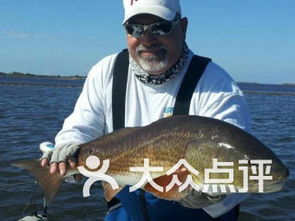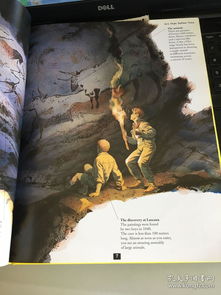Content:
Introduction: Deep water river fishing can be an exhilarating yet challenging endeavor. The vast expanse of water and the unpredictable nature of deep currents can make it difficult for even the most seasoned anglers to find success. However, with the right techniques and a bit of patience, you can turn your deep water river fishing experience into a memorable one. In this article, we delve into a comprehensive video guide that will equip you with the essential skills and knowledge to conquer deep water river fishing. So, grab your rod, and let's dive into the world of deep water river fishing techniques.
Choosing the Right Equipment: The first step in mastering deep water river fishing is to ensure you have the appropriate equipment. Here's a breakdown of the essential gear you'll need:
a. Rod and Reel: Opt for a medium-heavy to heavy-duty rod with a fast or extra-fast action. This will allow you to cast and retrieve effectively in deep water. Pair it with a sturdy reel that can handle the weight of your chosen bait or lure.
b. Line: Use a monofilament line with a breaking strength of at least 10-15 pounds. This will provide enough strength to withstand the pressure of deep water currents and potential fish strikes.
c. Lures and Baits: Deep water fish are often bottom feeders, so it's important to use heavy lures or baits that can reach the depths where they reside. Consider using jigs, sinkers, or live bait like worms, minnows, or crayfish.
Locating the Fish: Finding the fish in deep water rivers can be a daunting task. Here are some tips to help you locate the fish:
a. Research: Before heading out, study the river's map and identify potential hotspots, such as bends, drop-offs, or areas with abundant vegetation.
b. Observe: Keep an eye on the water's surface for signs of fish activity, such as boils, splashes, or fish rising to the surface.
c. Use a Fish Finder: A fish finder can be a game-changer when it comes to locating fish in deep water. It allows you to visualize the underwater terrain and identify fish schools or concentrations.
Casting Techniques: Casting effectively in deep water rivers is crucial for reaching the fish. Here are some casting techniques to try:
a. High-Back Cast: This technique involves a higher angle of casting, which helps to overcome the wind and reach deeper waters. Start by lifting the rod back, then accelerate forward with a smooth, controlled motion.
b. Roll Cast: The roll cast is ideal for casting in tight spaces or when you need to present your lure close to the bank. Begin by lifting the rod back and then roll it forward, allowing the line to unwind smoothly.
c. Toss Cast: The toss cast is a versatile technique that can be used in various situations. Start by lifting the rod back, then accelerate forward with a quick, flicking motion.
Retrieval Techniques: Once you've cast your lure or bait, it's time to retrieve it effectively. Here are some retrieval techniques to consider:
a. Slow and Steady: For bottom feeders, a slow and steady retrieval is often the most effective. Allow your lure or bait to sink to the desired depth, then reel it in at a consistent pace.
b. Jigging: Jigging involves quick, erratic movements that mimic the natural movement of fish. This technique is particularly effective for targeting fish that are suspended in the water column.
c. Trolling: Trolling involves slowly moving your boat or drifting along with the current while retrieving your lure. This technique can be effective for covering large areas and reaching fish that are spread out.

Patience and Persistence: Deep water river fishing requires patience and persistence. Fish may not bite immediately, so it's important to stay focused and be prepared for a long wait. Here are some tips to help you maintain your composure:
a. Take Breaks: It's easy to get discouraged if you're not catching fish right away. Take breaks to relax, rehydrate, and enjoy the beauty of the river.
b. Experiment: Don't be afraid to try different techniques, baits, or lures. Sometimes, it takes a bit of trial and error to figure out what works best in a particular river.
c. Learn from Others: Watch fishing videos, join fishing forums, and ask for advice from experienced anglers. Learning from others can help you refine your techniques and increase your chances of success.
Conclusion: Deep water river fishing can be a rewarding and exciting experience when approached with the right techniques and mindset. By equipping yourself with the appropriate gear, locating the fish, mastering casting and retrieval techniques, and maintaining patience and persistence, you'll be well on your way to becoming a skilled deep water river angler. So, grab your rod, hit the river, and enjoy the thrill of deep water fishing!












